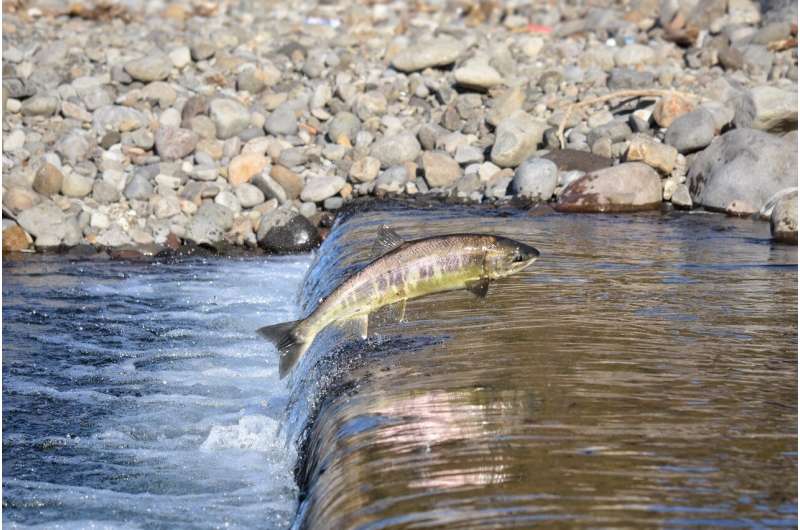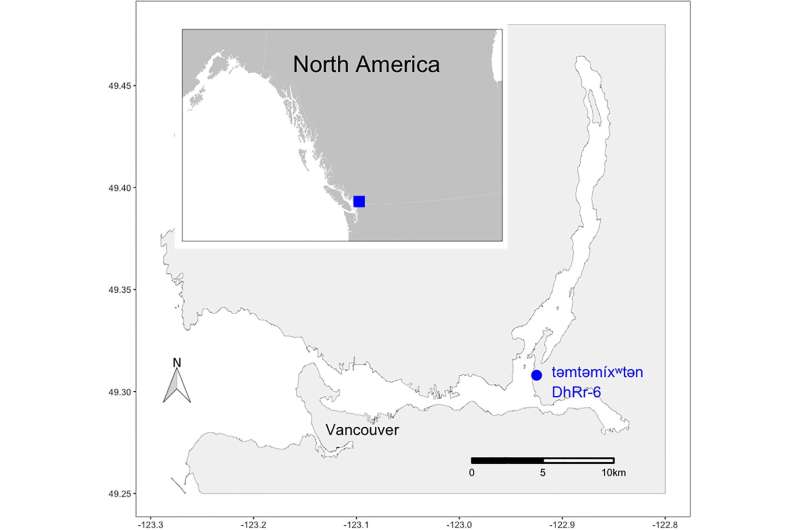This article has been reviewed according to Science X's editorial process and policies. Editors have highlighted the following attributes while ensuring the content's credibility:
fact-checked
peer-reviewed publication
trusted source
proofread
Salmon bones confirm sustainable chum fishery for 2,500 years under Tsleil-Waututh Nation

New research confirms that Tsleil-Waututh Nation has consistently and sustainably fished for chum salmon for 1,200 years longer than the archaeological record had previously demonstrated.
This supports Tsleil-Waututh knowledge and further demonstrates that Tsleil-Waututh people have been sustainably living on and stewarding their traditional territory for longer than Western science may recognize.
Researchers from Tsleil-Waututh Nation and UBC analyzed 245 salmon bones gathered as part of an archaeological dig in the 1960s and 1970s from təmtəmíxʷtən, a large and important site for the Nation located near what many British Columbians now know as Belcarra.
The research builds on a previous study which showed that the Nation sustainably and preferentially fished for chum salmon for 1,300 years, from about 400 BC to 1200.
Using carbon dating on eight new samples, the researchers extended this period of time a further 1,200 years, confirming Tsleil-Waututh ancestors fished for salmon from about 850 BC to 1650.

They found that chum salmon were the most commonly fished, and were caught consistently over the entire period. This consistency and the fact that chum are particularly sensitive to overfishing both point to a sustainable chum fishery under Tsleil-Waututh Nation stewardship, says co-author Michelle George.
The research points to the lessons to be learned from Tsleil-Waututh Nation stewardship, including around sustainable, selective salmon fisheries that focus not on extraction but on long-term ecosystem health, says first author Meaghan Efford, a doctoral candidate in the UBC Institute for the Oceans and Fisheries.
The paper is published in the journal PLOS ONE.
More information: Meaghan Efford et al, Archaeology demonstrates sustainable ancestral Coast Salish salmon stewardship over thousands of years, PLOS ONE (2023). DOI: 10.1371/journal.pone.0289797
Journal information: PLoS ONE
Provided by University of British Columbia



















